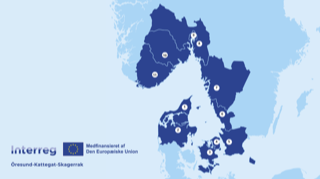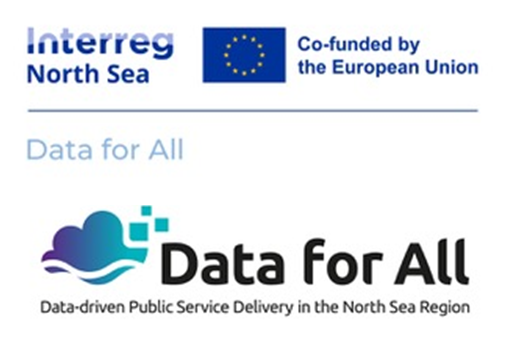Numerous projects are carried out by Cluster on Industrial Asset Management (CIAM) affiliates and experts. These include PhD projects, industry projects and international projects.
Projects play a very important role in shaping knowledge to fit the business ideas of members for use in a more sustainable and benefitting manner.
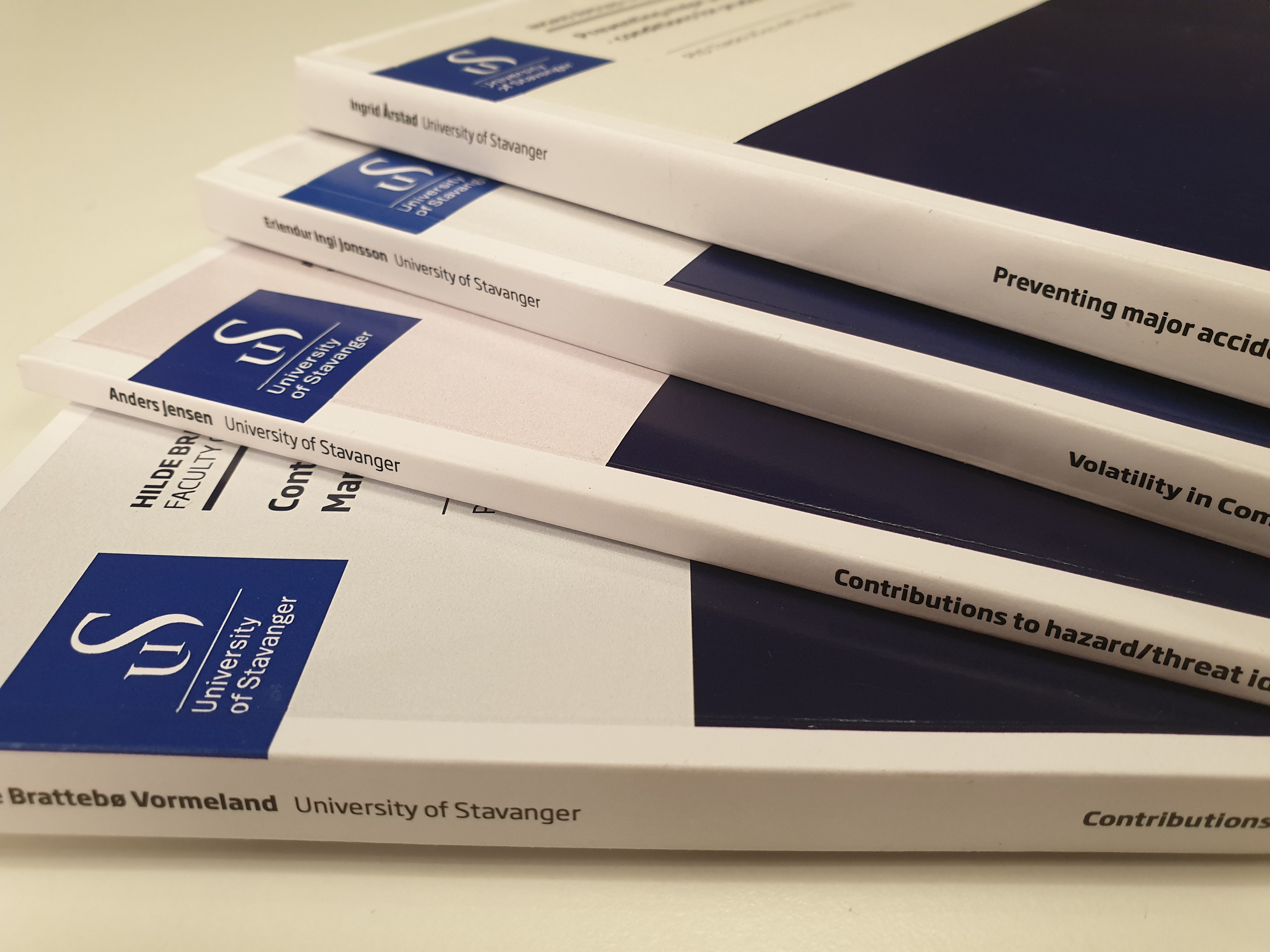
Projects play a very important role in shaping knowledge to fit the business ideas of members for use in a more sustainable and benefitting manner.
The Cluster recognizes that the two ways to establish such important projects are either by initiating own projects or being a partner for external projects. Either ways require us to have an up to date knowledge and understanding of our partners needs, business thinking and real operational challenges. By working closely and actively together in the most relevant projects such challenges can be turned into opportunities gearing towards long term value creation, for all partners, in sustainable manners.
CIAM continues to stay abreast of the latest and the newest by paying due attention to national R&D programs, the industrial sectors, state and public sectors, and international R&D programs. Interactive sessions with partners and Knowledge Hubs have very critical roles in this context.
Value4Sea

Purpose is to work on logistics in harbors with focus on the information flow and carbon footprint. Project leader is Aalborg University and there are partners from Denmark, Sweden, and Norway including several harbors. CIAM is a minor partner.
For information in Norwegian, please klick here
DUE TO A LOW DEGREE OF DIGITIZATION, the ÖKS region transport chains face general barriers, including slow and manual customs handling, long process times, and waiting times in terminal areas. This scenario leads to extended transport times, pressurized timetables, and increased fuel consumption. Additionally, there's increased pressure to transition to more sustainable energy forms, and various EU regulations impact the operations within the transport chain.
The project aims to identify improvement opportunities in the transport chains and develop a sustainable port terminal concept based on autonomous transport units. It seeks to achieve a high level of digitization and dynamic gate traffic control. The project will also develop a configurable "carbon footprint" concept model for transport chains and digital prototypes for integrating various systems and collecting data containing customs and logistics information.
Value4Sea has united various stakeholders with expertise to ensure rooted, standard solutions. Ports and companies contribute data and experiences to enable the development of shared knowledge.
This knowledge pertains to transport flows, infrastructure bottlenecks, deficiencies in transport services, and customs challenges between southern Norway, western Sweden, and Jylland. The project also aims to identify possible multimodal transport solutions between the countries. The results could enable cargo owners and carriers to streamline the flow of goods more efficiently among the three modes of transport and across national borders.
The project coordinates its efforts with the ongoing Grønn Jyllandskorridor project to exchange experiences and avoid overlaps. The project runs from 2023-2026
Read more about the Project here.
c
Data for All
Data for All aims to position the North Sea Region as the front-runner of data-driven innovation. Its seven pilots will each create pioneering local data ecosystems built on three essential dimensions:
The Data for All project is an alliance of 19 partners from seven different countries in the North Sea Region. These partners, including municipalities, regions, research organizations, and companies, work together to design sustainable data solutions for citizens and businesses. They also strive to promote an understanding of how to use data for the greater good of society.
Data for All aims to position the North Sea Region as the front-runner of data-driven innovation. Its seven pilots will each create pioneering local data ecosystems built on three essential dimensions:
- Technical: Data identification; Data gathering and storage; Data management and processing; Data quality standards; Data interoperability; Public provision and accessibility; Visualisation; Analysis and modeling
- Organizational: Stakeholder management; Community engagement; Intermunicipal cooperation; Resource management; Administrative culture of innovation; Public-private collaboration; Business models
- Regulatory and Ethical: Data ownership; Data privacy; Data security; Contracting; Licensing; Self-regulation and principles; Public awareness and acceptance; Public-private competition
Eigersund municipality via Eigersund Næring og Havn (ENH) , together with the CIAM/ University of Stavanger (UiS) is planning to develop a data strategy that will define a municipal data-centered business support model around sharing relevant data, for example, on Smart Energy Grids and logistical capacities, between public authorities and local businesses or industry. The data is already there. It is not available to private partners yet. ENH plans to establish an ecosystem around a centralized digital service for data sharing and utilization.
There is a lot of public information that can benefit both the municipality and the local companies. These data should become available to help joint sustainable development in the region through a standard system or user interface.
The project runs September 2022 – December 2025. Read more about the projects here.
FORMER PROJECTS
Edu4QI
Institutional cooperation for enhancement of quality and relevance of education at all levels and forms
The main goal of the Edu4QI project is to develop and verify a modular postgraduate education program for specialists in contemporary quality improvement concepts. The modular program will enable flexible adjustment of the university’s educational offer to the expectations of a wide group of beneficiaries - graduates of first and second-degree studies of various faculties in technical and social sciences.
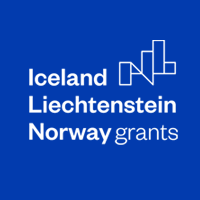
A complementary goal is to develop recommendations for the improvement of the postgraduate education process in relation to the educational and supporting processes, including administrative ones.
The results of the project will be created by partner teams of academic teachers - from the University of Stavanger in Norway and the Gdańsk University of Technology in Poland. In addition practitioners from organizations cooperating with partners are expected to participate.
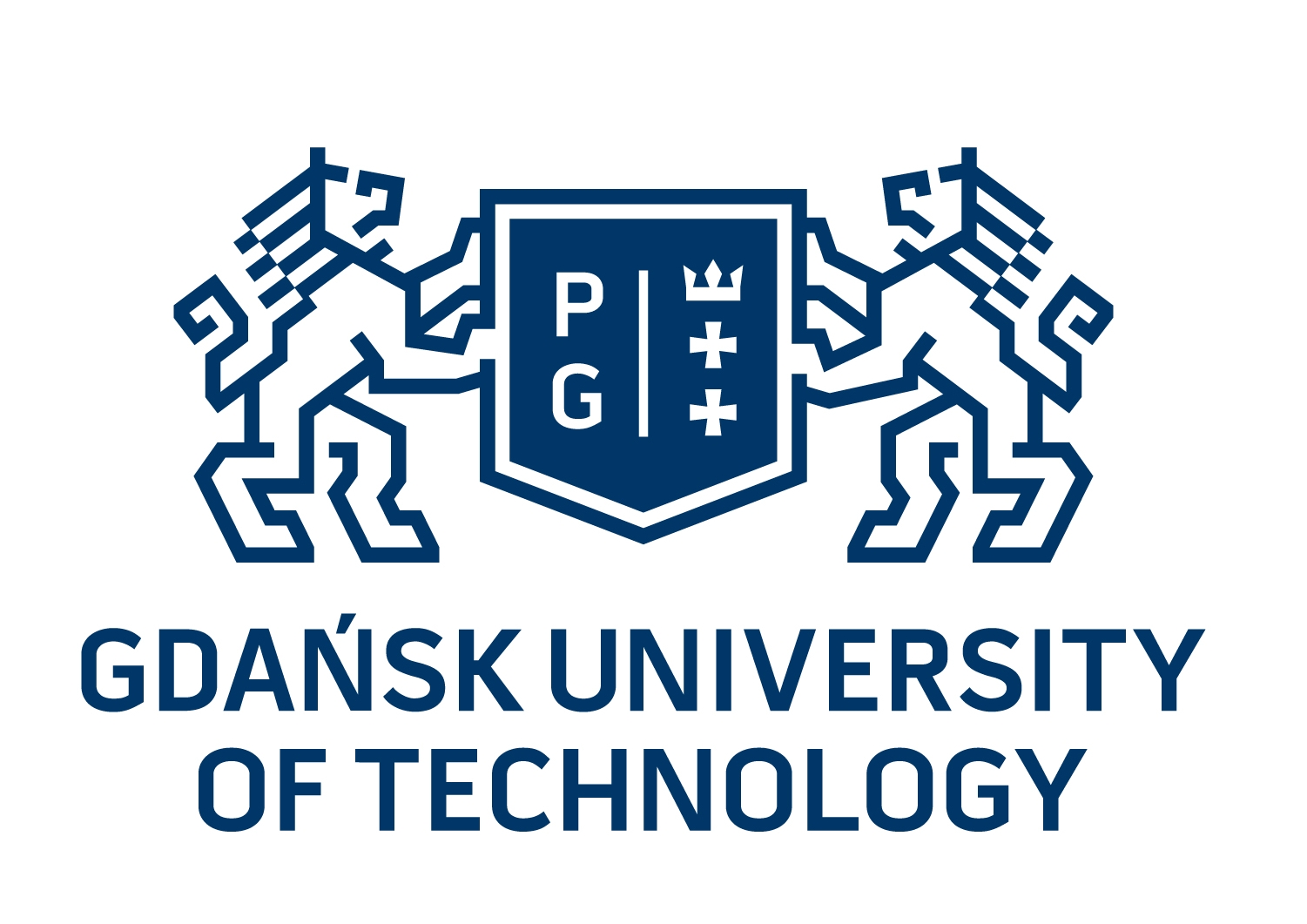
The main effect of the project will be a modular educational program tailored to the needs of partners, enabling its implementation in various modes - full postgraduate courses, intensive courses and accelerated training. An additional, jointly developed result ensuring the sustainability of the effects will be a set of guidelines for the organization of such initiatives, based on the Lean Management concept and models of excellence.
Project runs 2021- December 2023
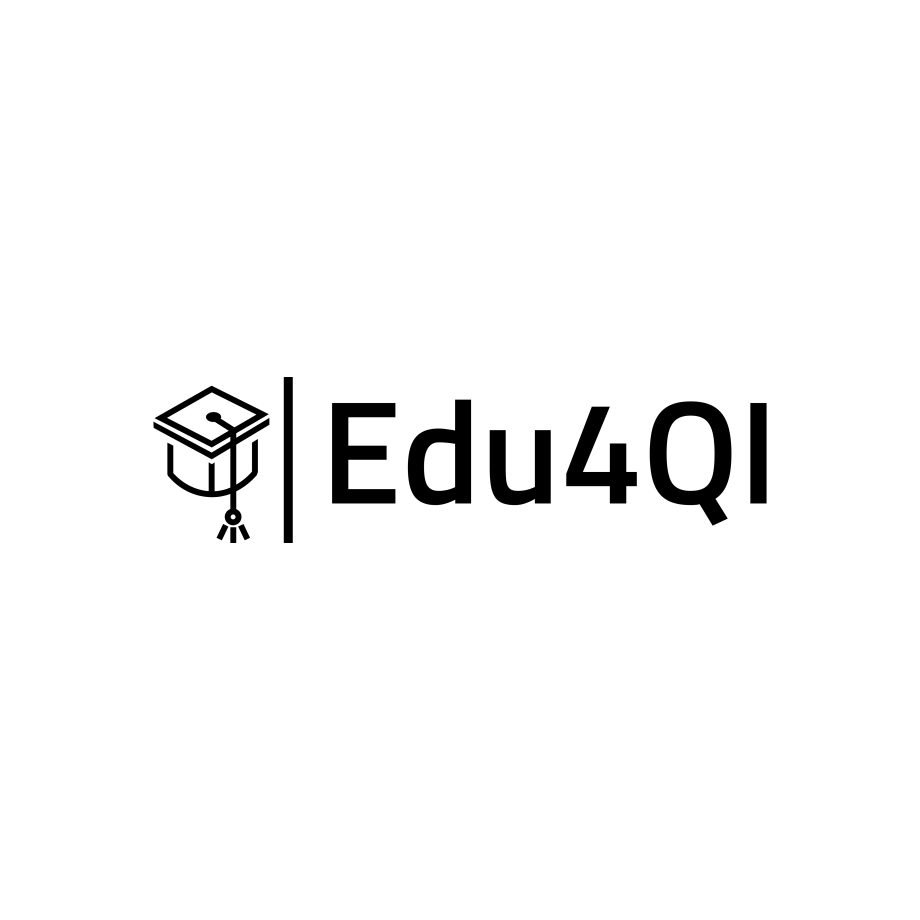
Building COMpetences for COMpetitive COMpanies (COM3)
COM³ is funded by the North Sea Program from Interreg B program area. COM³ puts the focus on local/regional authorities and develops transnational supportive structures being tested in 10 regions from 7 NSR countries with the aim of technology adoption and economic interoperability of enterprises.
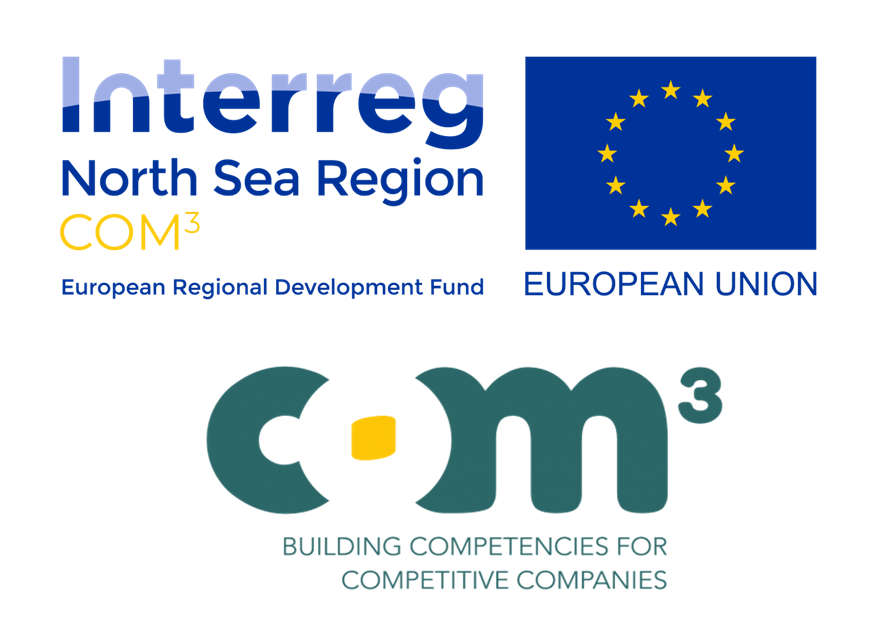
The innovative supporting measures will focus on enabling digital tech-adoption of local economy from one hand, but also on creating an interoperable environment for enterprises to work in a cross-border context by overcoming regulatory, data standard and communication burdens.
The COM³ training & coaching model, connected hubs, guiding measures and interoperability standards lead to effective cross-border cooperation of regional authorities, business support organizations and companies towards smarter regional growth in the NSR.
This project has 26 partners. The Norwegian ones are the University of Stavanger, University of South-Eastern Norway, Vinje kommune and CIAM (Cluster on Industrial Asset Management).
News and project updates can be found on the EU Interreg North Sea website.
Contact person for Rogaland in the Com3 is project coordinator Professor Jan Frick.
Educating Graduate Students for Industry 4.0 (EduInd4)
Collaboration between several educational institutions will foster the development of competence that will enable the students to be skillful in future industrial jobs.
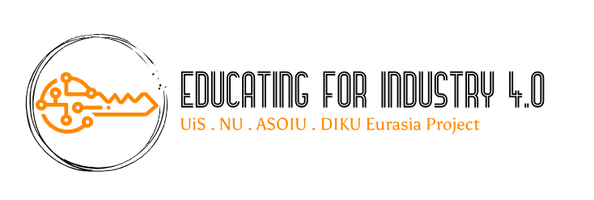
Starting in 2019, the collaboration of the three institutions (University of Stavanger in Norway, Nazarbayev University in Kazakhstan, and Azerbaijan State Oil and Industry University in Azerbaijan) will foster the development of competence that will enable the students to be skillful in future industrial jobs.
In addition to that, goals set for the project includes developing project-based contents of Predictive Maintenance and Operations Optimization, establishing joint research-based activities and enhancing industrial collaboration through summer industrial internships.
EduInd4 is in close cooperation with CIAM and the industry which is important in terms of establishing joint research activities (master thesis) and summer industrial internships.
Project Package
- Curriculum Development
- Joint Master Thesis
- Joint Course Projects
- Summer School
- Summer Internships
- Industry 4.0 Open Competition
- Timeline and Events
- Contact Information
Online Winter School – Industry 4.0
This course is an online winter school course that provides a comprehensive understanding and hands-on practices to apply industry 4.0 transformation.
Maintenance Organizations and -strategies for Large Scale Wind Parks
The purpose of the project is using advanced simulation modeling to investigate the effect on operational expenditure (OPEX) and levelized cost of energy (LCOE) from different maintenance organization configurations and different maintenance strategies.
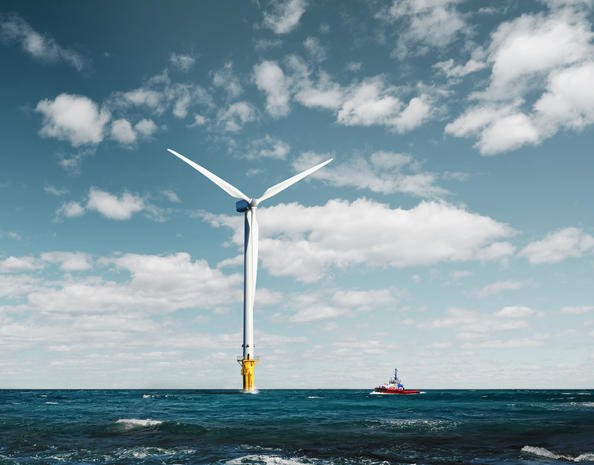
Centre for Industrial Asset Management in collaboration with the Norwegian Centre for Offshore Wind (NORCOWE) engages in a research project within offshore wind.
The purpose of the project is using advanced simulation modeling to investigate the effect on operational expenditure (OPEX) and levelized cost of energy (LCOE) from different maintenance organization configurations and different maintenance strategies.
An additional goal is to develop a simulation tool for decision support to be used by wind park developers in concept studies and for long term strategic decisions.
Here is a video (external link) demonstrating the current version of the simulation tool.
EPIC - Improving Employability through Student Projects, Internationalization, and Collaboration.
EPIC is an Erasmus+ Strategic Partnership which aims to strengthen student projects through joint industry collaboration and internationalisation.
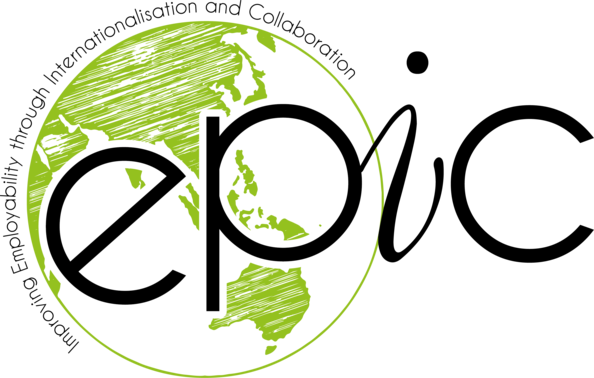
While employability is a main focus of the partnership, the methods developed will support a wider number of objectives:
- Increasing employability through closer collaboration between students and industry, by promoting active and problem-based learning, and by promoting international collaboration.
- Increasing the labour market relevance of education through closer collaboration between industry and academia, and making the students better prepared for both national and international labour markets in a globalized world.
- Increasing the students learning outcome by promoting active learning methods, based on students solving real-world problems.
- Promote the take-up of ICT tools and Open Educational Resources (OER) to facilitate international student projects based on blended learning, thus making international collaboration more scalable and sustainable by reducing the costs. This also makes it possible to give students an international experience without the need for spending prolonged times abroad.
- Provide the students with transversal competencies, especially focusing on problem solving skills, collaboration skills, entrepreneurial skills and skills within creativity and innovation.
The application organization is Aalborg University, Aalborg, Denmark and is joined by Saxion University of Applied Sciences, Enschede, Netherlands, ATeNe KOM GmbH, Berlin, Germany, Talaia Networks S.L., Barcelona, Spain, Universitat Politècnica de Catalunya (UPC), Barcelona, Spain, Abdullah Gul University, Kayseri, Turkey, Hamburg University of Technology (TUHH), Hamburg, Germany, Riga Technical University, Riga, Latvia, Uniwersytet Technologiczno- Przyrodniczy (UTP), Bydgoszcz, Poland.
The project will run from 01.09.2017 to 31.08.2020
